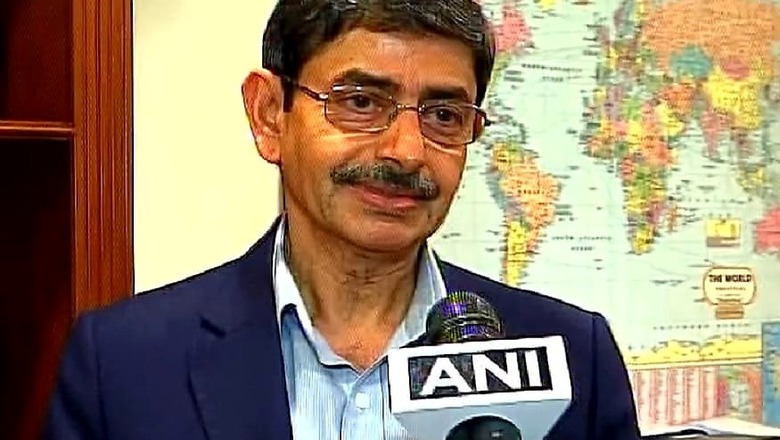
views
Guwahati: Following the abolition of Article 370 that gave special status to Jammu and Kashmir, there have been apprehensions in Nagaland about the possibilities of a similar action against its special provisions that are enshrined in Article 371A.
Rejecting such speculations, RN Ravi, the newly appointed governor of Nagaland, on Tuesday assured people that the Centre will revoke Article 371(A) from the state.
“I would like to categorically assure you all that you do not have to worry at all. Article 371(A) is a solemn commitment to the People of Nagaland. It is a sacred commitment,” Rabi said in a statement.
“We are earnestly working to happily conclude the ongoing political process which is at a very advanced stage,” he added.
RN Ravi, former deputy national security advisor, took oath as the governor of Nagaland on August 1 at Raj Bhavan in Kohima. He replaced PB Acharya, whose tenure ended on July 19. Ravi continues to be the interlocutor for the Indo-Naga peace talks.
Soon after assuming office as the Governor, Ravi said that Prime Minister Narendra Modi wishes to resolve the Naga political issue as soon as possible.
Most of the states of North East that have been accorded special provisions under Article 371 and the special status aims to preserve their tribal culture.
Article 371 (A) states that no act of Parliament shall apply to the state of Nagaland in respect to religious or social practices of the Nagas, its customary laws and procedures, administration of civil and criminal justice involving decisions according to Naga customary laws and ownership and transfer of land and its resources. It shall apply to Nagaland only after the state Assembly passes a resolution to do so, it says.
In June, Neikiesalie Nicky Kire, MLA of the Nationalist Democratic Progressive Party (NDPP) observed that Article 371(A) impedes the State’s development. Article 371 (A) states that land and its resources in the State belong to the people and not the Government.
The MLA said due to the provisions in Article 371(A), landowners usually do not allow the Government to carry out any development activities on their plot.
Meanwhile, Article 371 (G) that deals with special provisions with respect to Mizoram has similar nature. It states that an act of Parliament relating to religious and social practices of Mizo customary law and procedure, administration of civil or criminal justice involving decisions according to Mizo customary laws, ownership and transfer of land and its resources will not apply to Mizoram unless State assembly decides to do so.
It to be mention that Article 371 (B) deals with special provision with respect to the state of Assam. The main objective of inserting Article 371 (B) was to facilitate the creation of the sub-state ‘Meghalaya’.
Article 371-C deals with special provisions with respect to Manipur which became a state in 1972. Articles 371 (F), 371 (H) talk about special provisions with respect to states of Sikkim, and Arunachal Pradesh, respectively.




















Comments
0 comment